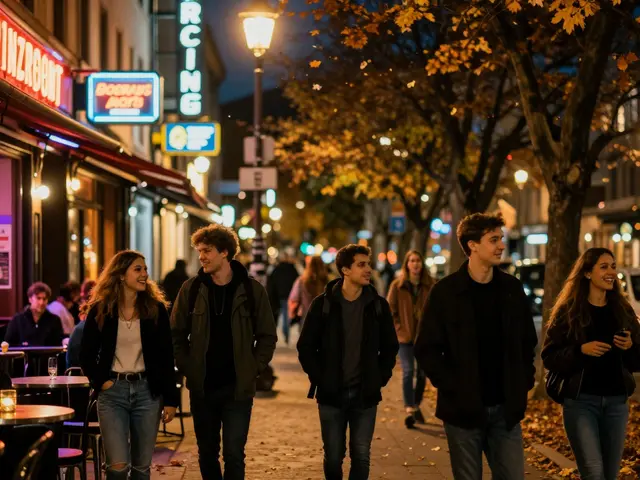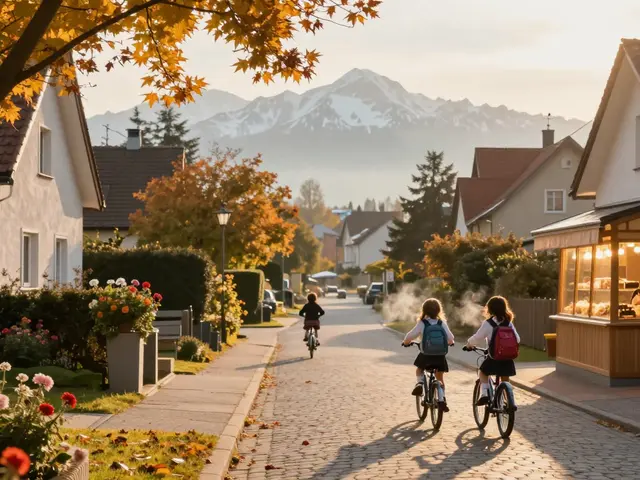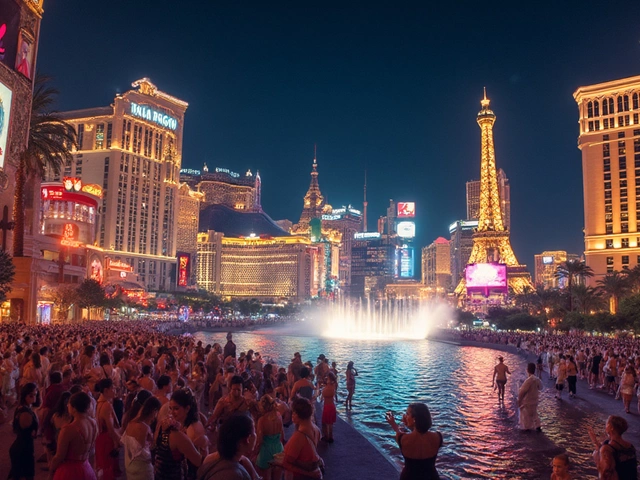Sibylle Rauch doesn’t just live in Munich-she knows it like the back of her hand. A fixture in the city’s art and nightlife scene since the 1980s, she’s seen clubs open and close, cafes rise and fade, and entire neighborhoods transform. But through all the changes, she’s stayed loyal to a few places that feel like home. If you want to experience Munich the way someone who’s lived it for decades does, skip the tourist brochures. Follow Sibylle’s trail.
The old-school bar that never changed
Start at Wirtshaus in der Au, a beer hall tucked behind the train station that still has the same wooden benches and ceiling fans from the 1970s. Sibylle comes here every Thursday for a Radler and a plate of Obatzda. It’s not fancy. No Instagrammable walls. Just locals, old jazz on the stereo, and a bartender who remembers her name. She says this is where she first met artists, musicians, and writers who later shaped Munich’s underground scene. The beer is cheap, the air smells like hops and smoked sausage, and nobody rushes you. That’s the point.
The bookstore that feels like a secret club
Walk ten minutes to Buchhandlung Volker, a tiny, cluttered bookshop on Schleißheimer Straße. Sibylle doesn’t just shop here-she volunteers on weekends. The owner, a retired professor, lets her pick new arrivals and curate a corner called "Rauch’s Picks." You’ll find obscure poetry from East Germany, out-of-print photography books, and first editions of Munich-based writers no one else stocks. She’ll often sit in the back with a cup of tea and read for an hour. If you ask nicely, she might pull out a signed copy of a 1987 zine she helped publish. It’s not on Google Maps. You have to know it’s there.
The jazz club where the music never stops
At night, Sibylle heads to Club 77, a basement jazz spot under a parking garage in Schwabing. It opened in 1981 and still has the same sticky floors and dim red lights. No cover charge on Tuesdays. No fancy cocktails-just local beer and a single bartender who pours without asking. The house band, The Munich Lowdown, plays every Thursday. Sibylle says she’s seen everyone from Charlie Haden to young local prodigies here. She doesn’t dance. She just sits near the back, listening, nodding. That’s her ritual. If you want to hear music that hasn’t been polished for tourists, this is it.
The hidden garden where artists still gather
On sunny afternoons, Sibylle walks to Stadtpark am Englischen Garten-but not the main paths. She heads to the far end, past the lake, to a quiet grove near the Eisbach. There’s a wooden bench under a chestnut tree where she’s sat for decades. Artists, poets, and musicians still come here to read, sketch, or play guitar. No signs. No entry fee. Just a circle of regulars who’ve been coming since the 1990s. She says the best conversations happen here. Not because it’s beautiful, but because it’s forgotten. Tourists don’t find it. Locals don’t talk about it. It just exists.
The café that serves coffee like it’s medicine
For breakfast, Sibylle goes to Kaffeehaus am Platzl, a tiny place that opened in 1988 and still uses the same Italian espresso machine. She orders a double espresso, no sugar, and a slice of Apfelstrudel with extra cinnamon. The owner, a woman in her 70s, has known her since she was 22. Sibylle says the coffee here tastes like memory. It’s not the strongest in Munich, but it’s the one that stays with you. She won’t go anywhere else. Not even for the new third-wave places that charge €8 for a pour-over. "That’s not coffee," she says. "That’s a performance. This? This is life."
![]()
The record store that still sells vinyl like it’s 1995
Down the street from the café is Plattenkiste, a record store that smells like dust, wood polish, and old vinyl. Sibylle still buys her jazz and krautrock records here. The owner, a guy named Hans, has been collecting since the 1970s. He’ll dig through bins for you and play you a track before you buy. Sibylle found a rare 1972 Klaus Dinger album here in 2019-her favorite. She says it’s the only place in Munich where you can still find music that wasn’t made to sell. No algorithms. No playlists. Just someone who knows what you’re looking for before you say it.
Why these places matter
Sibylle Rauch’s haunts aren’t the most popular. They don’t have rooftop bars or neon signs. They don’t appear on TikTok tours. But they’re real. They’ve survived because they don’t try to be anything other than what they are. They’re places where time moves slower, where people stay, where history isn’t packaged for sale. If you want to see Munich through her eyes, you don’t need a guide. You just need to show up, sit down, and listen.
Where does Sibylle Rauch live in Munich?
Sibylle Rauch lives in Schwabing, near the Englischer Garten. She’s been in the same apartment since the 1980s. It’s not a luxury flat-just a quiet, book-filled space with a view of the trees. She says the neighborhood hasn’t changed much, and that’s why she stays.
Is Sibylle Rauch still active in Munich’s art scene?
Yes. At 74, she still curates small exhibitions, writes for local magazines, and hosts informal salons in her home. She doesn’t do big events or gallery openings anymore. Instead, she meets artists for coffee, reads their work, and gives quiet feedback. Her influence is subtle but deep-many younger Munich creatives credit her with helping them find their voice.
Can I meet Sibylle Rauch at these places?
You might. She’s not famous for being famous-she just shows up regularly. If you see her at Wirtshaus in der Au or Club 77, don’t interrupt. She’s there to be still, not to be photographed. A simple nod or a quiet "Guten Tag" is enough. She’ll respond if she wants to. Don’t ask for selfies or autographs. That’s not why she goes there.
Are these places open to tourists?
Absolutely. These spots welcome anyone who respects them. But they’re not designed for crowds. Go early. Be quiet. Don’t take photos unless you’re asked. Sit at the bar. Talk to the staff. Let the place reveal itself. That’s how Sibylle experiences them-and that’s how you should too.
What’s the best time to visit these spots?
Weekdays are best. Wirtshaus in der Au is quietest on Thursday afternoons. Club 77 comes alive on Tuesday and Thursday nights. Buchhandlung Volker is open from 10 a.m. to 7 p.m., but the best conversations happen after 5 p.m. Avoid weekends if you want to feel like you’re part of the scene, not just watching it.



